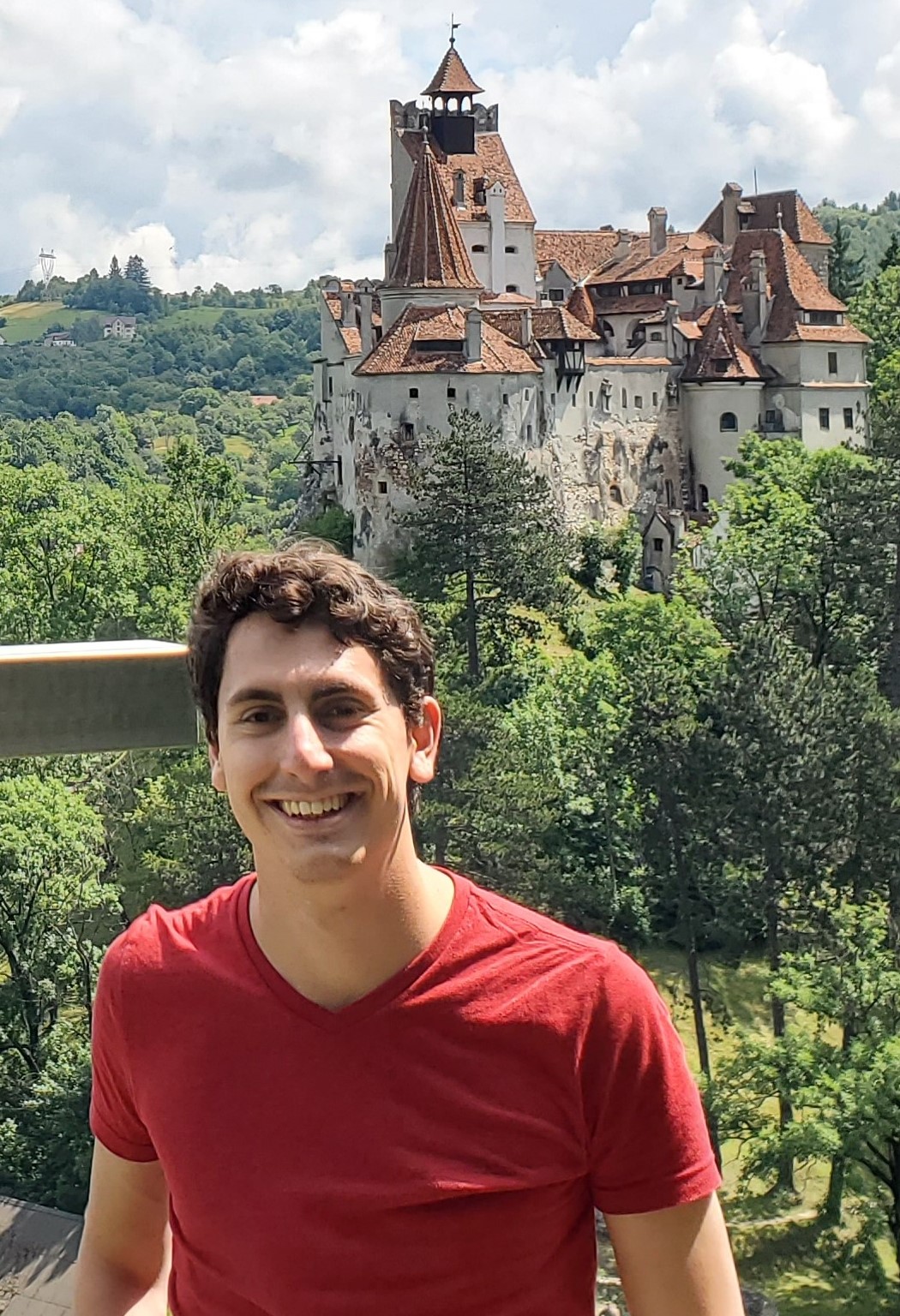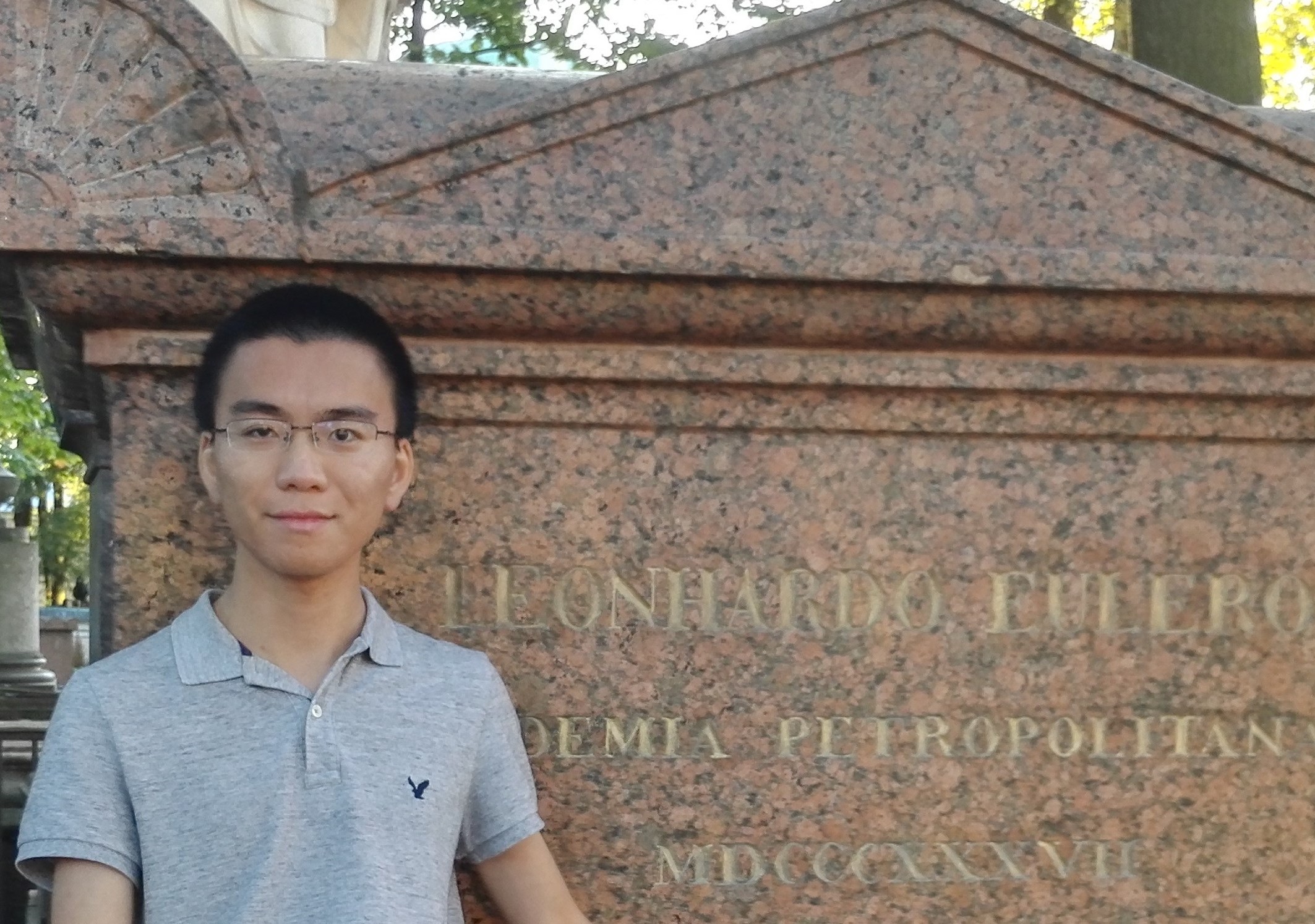Learning Abroad: Adventures in Eastern Europe and Russia
Dylan Johnson and Jing Guo are both math majors at the U, and each decided to study math in a foreign country as part of their undergraduate experience.
Dylan learned about “Budapest Semesters in Mathematics” (BSM) from a flyer in the Math Department. Jing completed the same program, as well as another called “Math in Moscow” (MiM). For both programs, the instruction is in English, and students are encouraged to study a language, too.

“I knew absolutely nothing about Hungary before coming to
Budapest, so there have been a lot of strange and surprising
experiences,” said Dylan. “It’s the little things that stand out and
make day-to-day life so different and interesting.”
While Dylan really enjoys math, he didn’t want his entire
university education to revolve only around one subject. He
figured that by studying abroad he could balance his desire to
learn about politics, language, and culture and still stay on track
with his math education. “I thought it would be valuable to
experience math from a different perspective, not just from
professor to professor at the U, but across a new culture,” he
said.
Jing also wanted to experience different philosophies of doing
mathematics in order to think about problems from various
perspectives. “Russian mathematicians usually teach at a pace
comparable to U.S. grad schools, while keeping the focus on
proofs and solving problems,” said Jing. “Sometimes they [the
Dylan Johnson near Bran Castle in Bran, Romania.
instructors] would mention how one theorem or concept in one course would work in another and vice versa.”
Both Dylan and Jing have found the quality of the math instruction to be first rate with BSM. Dylan likes how different the instruction is from what he’s experienced in the U.S. “Rather than the U.S. emphasis on distinctly different math subjects, the Budapest program offers Hungarian-style courses that blend a whole bunch of different math subjects into one,” he said. “Even my class devoted to real analysis actively pulls in from my other classes via the homework. In this way, I feel that I not only learn about math but also experience a new kind of mathematical pedagogy.”
 Jing notes that the Budapest and Moscow programs provide courses that are not usually
offered at the U, such as representation theory and knot theory, as well as combinatorics—the
field of mathematics concerned with problems of selection, arrangement, and operation
within a finite or discrete system.
Jing notes that the Budapest and Moscow programs provide courses that are not usually
offered at the U, such as representation theory and knot theory, as well as combinatorics—the
field of mathematics concerned with problems of selection, arrangement, and operation
within a finite or discrete system.
“I would say Russian and Hungarian mathematics are different by nature,” said Jing. “Traditionally, “Hungarian mathematics” relies mostly on so-called elementary methods that Jing Guo at Euler's tomb in St. Petersburg, Russia.
generally require nothing more than linear algebra. This isn’t true for Russian mathematics—it requires a higher understanding of math.”
Culture and Culture Shock
Dylan admits to a bit of culture shock in Budapest. “Hungarian culture perceives smiling at strangers as insincere, so I’ve had to adjust from the American habit of smiling freely at people I don’t know.” He has also learned to adjust to the European lifestyle of small, frequent grocery trips instead of long, exhaustive trips where everything gets hauled home in the car. “Each lifestyle has its own advantages and disadvantages, but together they make up a wonderful and immersive experience.”
Both students have had the opportunity to sightsee and travel when they weren’t in class. “We’ve had mini-seminars about the Hungarian language, culture, and music, as well as weekend trips. I was able to enjoy a wonderful trip to Romania,” said Dylan.
Jing took advantage of Moscow, visiting museums and galleries, such as the Pushkin Museum and the Tretyakov Gallery. He saw ballet and had the opportunity to watch opera at the Bolshoi Theatre. He also traveled to St. Petersburg, as well as Bratislava, Brno, and Novi Sad during his semester in Budapest.
Dylan and Jing recommend both programs to students who want to experience a different approach to a mathematics education. “Some courses are hard, for sure,” said Jing. “But you can learn a lot if you put in the time and effort.” Dylan suggests that students need to have taken the equivalent of Math 3210 to do well in the BSM program.
For more information about BSM or MiM, visit https://www.budapestsemesters.com/ or https://mathinmoscow.org/. For more about the U’s study abroad programs, visit https://learningabroad.utah.edu/.
